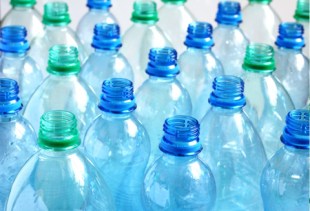Bisphenol A, phthalates, adipates and other toxins in plastic
Any healthy aging plan needs to include toxin management. Simple things, such as eliminating toxic plastics all contribute to your health as you age.
Plastics are chemical polymers that can be molded into almost any shape for any function. Most plastics contain a range of chemical products, some of which gets into our food and drink, or the environment. Many different toxins have been identified, depending on the type of plastic (which can be identified by the number inside the triangular recycling label). However, in this modern world it is not always easy to spot plastic.
Take a look inside a can and you will usually see a solid film of plastic to prevent food from reacting with the metal. This plastic can leach a number of toxins into canned food.
The best-known plastic toxins include the phthalates and adipates (contained in type 3 plastics) and polycarbonates (like bisphenol A, in some type 3 and type 7 plastics). The long-term health implications of various chemicals that leach from plastics are poorly understood. We now know that many can disrupt hormonal function.
For example, bisphenol A binds and activates estrogen signalling. Some phthalates may also contribute to the development of allergies and asthma. And while we’re making a change, consider the environment and the pollution that these non-degradable plastics can cause. It is not too hard to make a change to limit the plastics that we use (and abuse).
Options to reduce your exposure to toxins from plastics
- Cook and microwave using glass or ceramic containers. If you must use plastic, choose opaque or colored bottles that are made of safer plastics. Do not heat polycarbonate bottles (#7)
- Use microwave-safe plastic wrap (made of polyethylene), or better still, non-bleached paper towels
- Limit use of canned food and plastic containers.
- Use bottles made from glass or stainless steel.
- Watch out for those large water cooler bottles.
- Try to avoid #3 and #7 plastics.
- The safest plastic products are those made of high-density polyethylene (HDPE, #2), low-density polyethylene (LDPE, #4) or polypropylene (#5, translucent, not transparent)
Last Reviewed 02/Mar/2014
Dr Merlin Thomas
Latest posts by Dr Merlin Thomas (see all)
- How to increase DHEA levels - 28/09/17
- Testosterone supplement benefits & risks - 11/07/17
- Health effects of tea & coffee - 10/07/17







